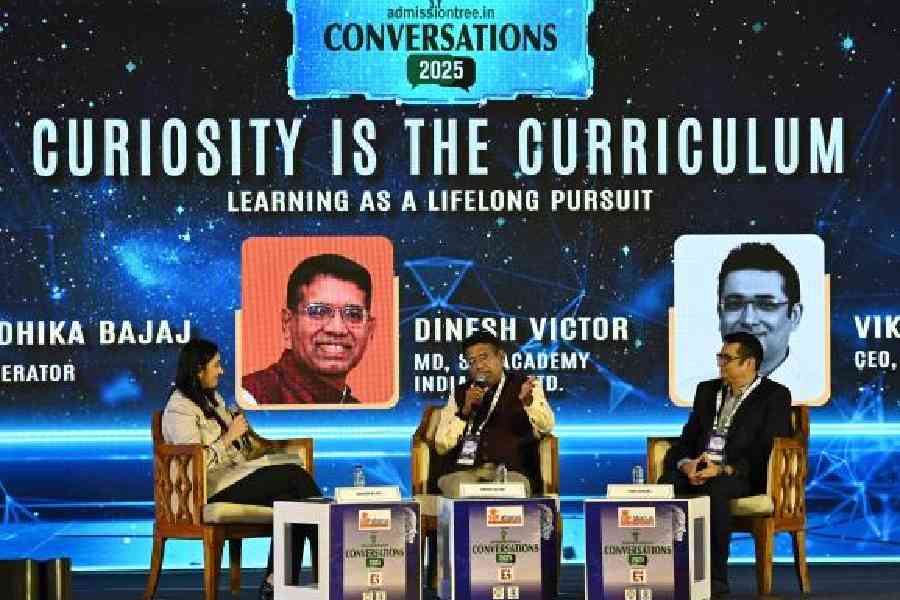Teachers telling children they (teachers) do not know the answer to a question can help children grow up to be more curious, said the head of an organisation that runs skills development programmes for children.
Assessments that prioritise creativity over speed, and reasoning over recall would fuel a child’s curiosity much more, said the head of an organisation that focuses on diagnostic assessments for children.
Dinesh Victor, managing director, SIP abacus, India, and Vikas Narang, chief operating officer, Educational Initiatives, Ei, were having a discussion on Curiosity is the Curriculum, at the third edition of SIP abacus presents admissiontree.in Conversations 2025, powered by Educational Initiatives and co-sponsored by JD Birla Institute and Vidya Mandir Society.
Chief guest of the occasion was V. Narayanan, the chairman of Isro.
Victor and Narang were addressing school principals, college heads at ITC Sonar on Wednesday. The session was moderated by journalist Radhika Bajaj.
“Children are naturally curious. We really don’t have to do much. All we need to do is not let their curiosity die down,” said Victor.
“One of the great things that can help children is if teachers say I don’t know the answer. When I was growing up I never heard a teacher say, I don’t know the answer. I think if teachers are willing to say that, it would give children confidence to ask certain questions,” said Victor.
He said that curiosity is a natural thing in children, the difficult part is to ensure that curiosity stays on as one grows.
Narang said that curiosity has to be integrated into the existing curriculum and questions have to be asked in a manner that will ignite curiosity in children.
If it is only about marks that a child scores in an exam than anything else then its difficult to change the system, said Narang.
“If I know that my exam is going to test me on recall against reasoning, speed against creativity, correctness against curiosity, I am going to prepare for the exam exactly the way the questions are framed. That will get me the highest marks,” said Narang.
Helping children learn differently, changes in the lesson plans naturally follow changes in the assessment pattern, said Narang.
Both Council for the Indian School Certificate Examinations (CISCE) and Central Board of Secondary Education (CBSE) have introduced critical thinking and analytical questions in the Classes X and XII board exams.
Schools have not only introduced such questions in the higher classes but in the primary and middle school as well to help children get used to more competency based questions as against rote learning.
“Assessments have to align with skill based development...,” said Major General V.N. Chaturvedi, secretary general Vidya Mandir Society, which runs Birla High School, Sushila Birla Girls’ School and Birla High School Mukundapur.
“With changing times and artificial intelligence (AI) coming into play the future is going to be determined by the kind of questioning that takes place to bring out the realistic assessments of the learning that has taken place,” he said.










